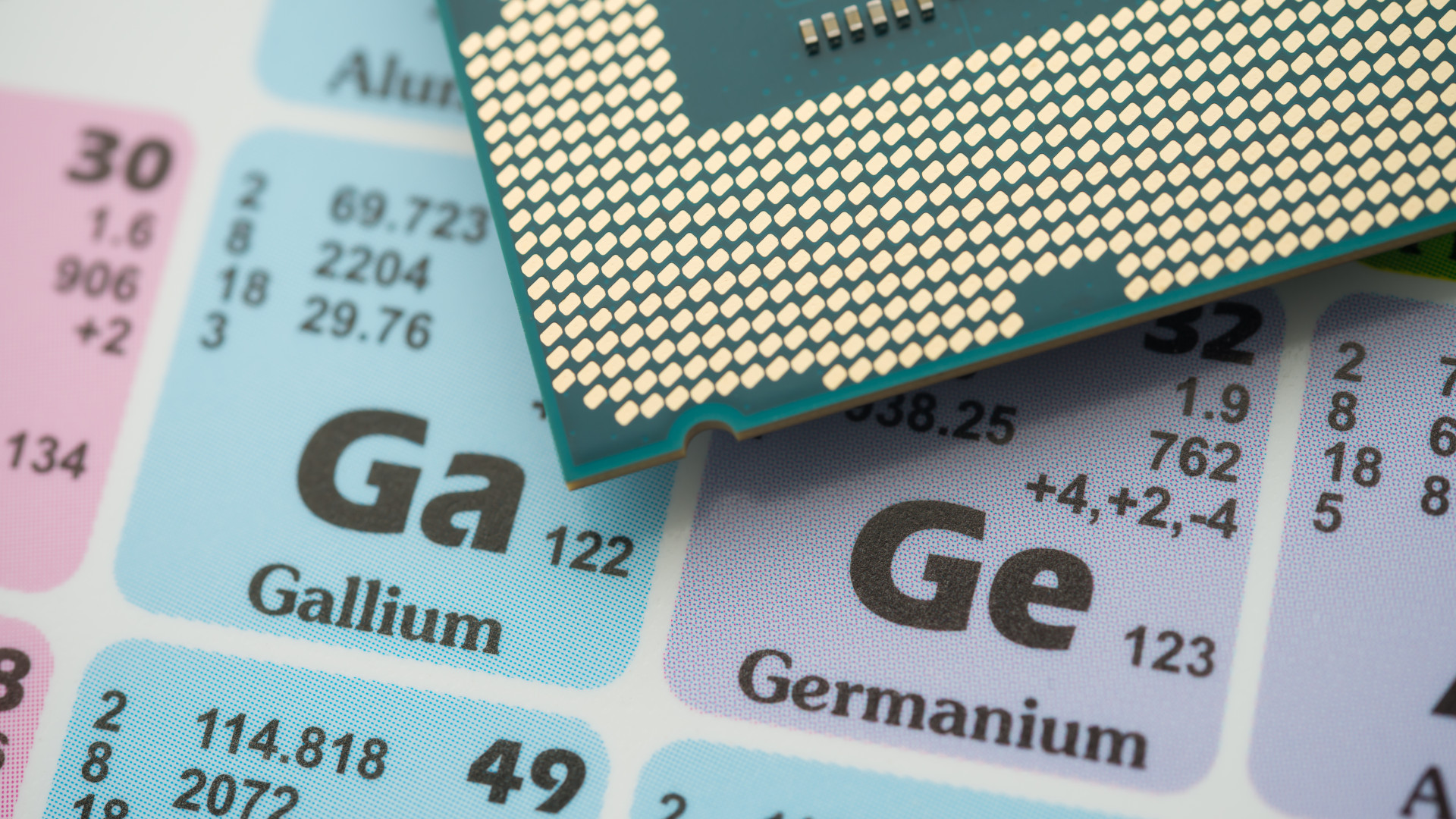
The Covid pandemic was a stark reminder as to just how fragile the global supply chain is, and now we have a new one to worry over. Two weeks after China applied an export restriction to the US on any metals critical to the semiconductor industry, prices for the likes of gallium have shot up in price—to the point where it's now more expensive than it has ever been in the last 23 years.
News of gallium's price hike was reported by Mining, although it's worth noting that the soft, silvery metal has been considerably more expensive in the further past than the $595/kg the report highlighted. Bloomberg (via Tom's Hardware) notes that China accounts for 94% and 83% of all the gallium and germanium global supply, and while not all that directly goes to the US, it does mean the country's export restriction will have some kind of an impact on the supply chain.
Gallium, germanium, antimony, and other metals are critical to the semiconductor and electronic industry. They're used to create the materials required for high-speed, high-current switching systems, and countless devices just wouldn't exist without them—including solar panels, radar equipment, display screens, and optical equipment. The fact that such gadgets can potentially have military use was China's justification for the export restriction.
Unfortunately, we can't just go around digging up more of these metals. That's because they don't exist in an elemental form in the Earth's crust and their compounds are typically bound up in other materials that are extracted from the ground. In the case of gallium, almost all of it comes as a byproduct of aluminium and zinc manufacturing.
And while none of them are rare, setting up new supply chains or extraction sites will take time and cost a lot of money. Hence why the metal trading markets have seen prices for all these valuable metals jump in value.
How long it will take before we see a significant price increase for electronic goods isn't certain, but if one assumes that the trade restrictions between the US and China remain in place for the foreseeable future, any increases in costs will almost certainly be eventually passed down to the consumer.
Given that the average gaming PC is packed with components that require these metals, I wouldn't be surprised if we start seeing specific items, such as power supply units, jump in price relatively soon. Not because they've already been affected by the metal price increase but because vendors will want to reduce supply levels, in case of material shortages in the future.







